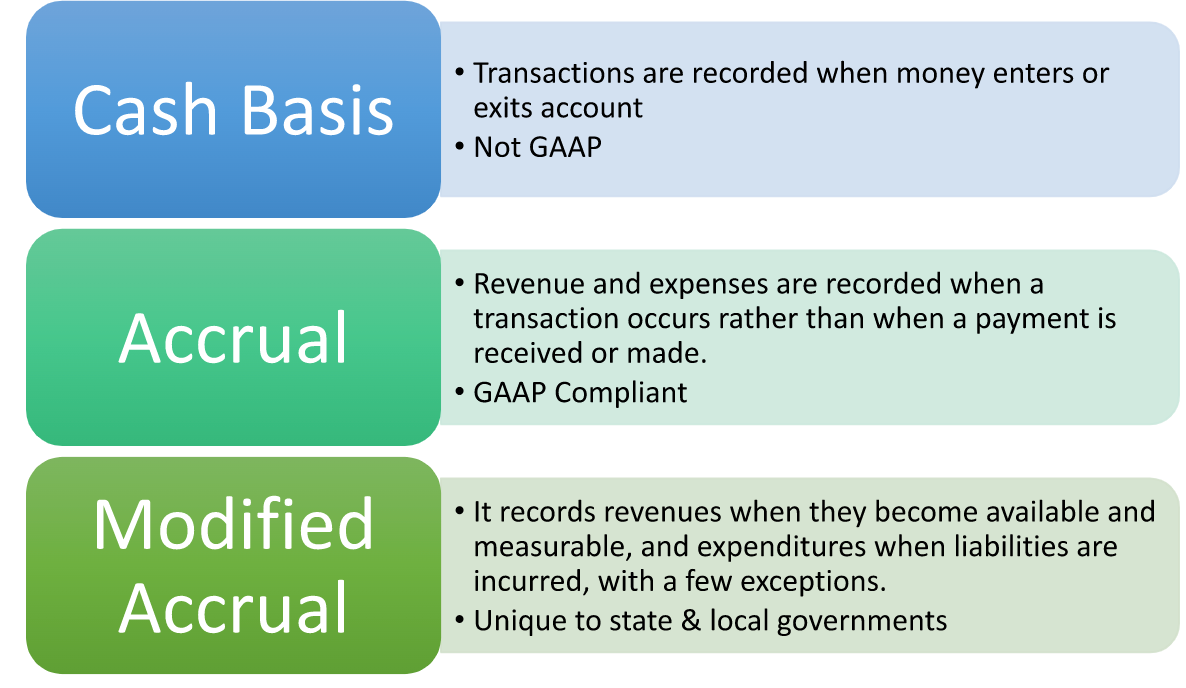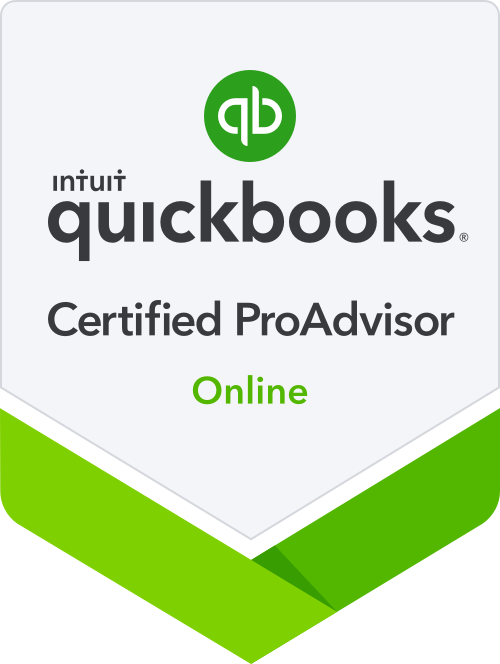Blog

Running a business requires more than vision and drive. It also requires financial clarity. At Gordian Financial, we help you cut through complexity by providing clear, reliable financial strategies and operational support. Our goal is simple: give you the tools and insight to grow with confidence. Outsourced Bookkeeping That Grows with You Not every business needs a full in-house accounting team. Our cloud-based, paperless bookkeeping services scale with your needs, so you always have accurate financial data without the overhead of unnecessary staff. Payroll, Compliance, and 1099 Management Payroll and compliance can be time-consuming and risky if not done correctly. We handle payroll, 1099 processing, and one-time audit cleanups, so you never have to worry about penalties or missed deadlines. Cleanup and Consultation Services If your books are behind or disorganized, we provide cleanup and restructuring services to get you back on track. Our consultation services help you identify financial challenges and build strategies for the future. Specialized Nonprofit Support Nonprofits face unique reporting and compliance requirements. We work closely with nonprofit organizations to ensure their financial obligations are met, leaving them free to focus on their mission. Building a Strong Financial Foundation Every business decision depends on accurate financial information. By partnering with Gordian Financial, you can reduce risk, improve decision-making, and spend more time focusing on growth and client relationships. Solid financial strategies are not just about staying compliant. They are about creating stability that allows your business to thrive. Ready to take control of your finances? Consult with Gordian Financial today!

Running a homeowners association (HOA) requires more than maintaining shared spaces and upholding community guidelines, it demands strong financial management to ensure long-term stability. At Gordian Financial, we provide the accounting expertise and financial oversight that HOA board members and property managers need to lead with confidence. We partner with HOAs of all sizes to keep financial operations accurate, transparent, and compliant. From monthly reports to annual budgets and reserve studies, we handle the details so you can stay focused on serving your community.

One of the perks of being a business owner is the ability to choose how you get paid. There are two main ways to take money out of your business: a salary and a distribution. Each of these options retains tax advantages that need to be considered, making it necessary to consider the basics of each option to choose the right one for your situation.

The tax law is constantly changing, making it essential that business owners stay on top of the deductions and credits they are able to take. Pandemic relief is still lingering around, giving employers the ability to take exclusive tax credits while the IRS has altered some of the deductions available for business owners. The Employee Retention Tax Credit, temporary 100% meals deduction, student loan interest repayment option, and entity-level tax payments are areas where the tax law has changed, making comprehension a must to reduce your tax bill.

Creating the most beneficial procedures in your bookkeeping function takes time and trial and error. The procedures that work for one company might not be what works best for your business. As a result, understanding common bookkeeping procedures that should be completed on a monthly basis provides you with a great starting point to add to or adjust your current policies.

When it comes time to finally open that business you’ve been dreaming about, what structure should you choose? Choosing the right business structure is one of the most important decisions you will make as it controls the way you are able to raise capital, how you will pay taxes, and what happens to your business if you decide to sell.

What is one of the most important aspects of running a business? You may be thinking of advertising or revenue streams. Although those are important areas, bookkeeping is one of the top functions that makes or breaks a business. Understanding bookkeeping best practices give you the ability to set a strong foundation for your business to grow, making it critical to evaluate and improve your current procedures.

Running a successful business takes time, perseverance, and dedication. Many business owners become so consumed with generating their first sale or hitting a large milestone that they neglect the basics. Regular bookkeeping is vital to long-term success and scalability, leading to improved cash flow, the promotion of financial transparency, more informed business decisions, a reduction of fraud risk, and timely tax remittances.

Bookkeeping is an essential component of managing a business. When starting a business, it’s one of the first things you should do. If you’re not doing it, you’re losing out on crucial information about your company that could help in its expansion and growth. Still, if you are unfamiliar with the process, bookkeeping might be scary. The purpose of this guide is to show you how to begin bookkeeping, what kinds of data are available, and how to use them wisely in your small business. Before we jump on it, let’s talk about what bookkeeping is.

Start-ups, small businesses, and even entrepreneurs may encounter challenges when it comes to finding the right accountant or bookkeeper who will handle the company’s financial statements properly. Even if you’re able to prepare invoices and manage bank account operations, once your business gains traction, it can be difficult to keep up with it in the long run. It’s common for new business owners to want to do every single operation in the company. But, it’s possible to overlook and mismanage things. Handling every single task may not be effective for the growth of your business. If you’re not observing your company’s finances carefully, then it’s best to let someone else do the job for you. This is why bookkeeping services are a thing, it’s so that you don’t have a lot on your plate.

Starting a new business can be an exciting adventure, but it also comes with a lot of challenges. One of the most crucial elements of building a successful business is ensuring that you have a solid financial foundation. Smart financial strategies from the start can be the difference between thriving or struggling in the long run. Whether you’re launching a small startup or expanding your entrepreneurial endeavors, having a clear and well-organized financial plan is essential. In this blog, we’ll explore how to lay the groundwork for your business’s financial success, highlighting key strategies for new business owners, such as tracking expenses, understanding taxes, and setting up efficient accounting systems.

Starting a new business is an exciting journey, but it comes with unique challenges—especially in establishing a strong financial foundation. From managing cash flow to setting up accounting systems, early decisions can significantly impact the long-term success of your venture. Gordian Financial offers tailored financial consulting services designed to help new businesses build a solid foundation for sustainable growth.

When running a business, every dollar counts. It might seem tempting to handle your accounting tasks yourself to save money, but DIY accounting can often end up costing you far more than you realize. Let’s explore the hidden costs of managing your own bookkeeping, payroll, and tax preparation—and why professional accounting services like Gordian Financial can make a difference for your business.

Estimated quarterly taxes are most commonly paid by freelancers, self-employed individuals, and small business owners, who are responsible for making these payments on their own. The due dates for these payments change each year, and late payments can result in penalties and cash flow problems, which is something no small business owner wants to face. In this blog, Gordian Financial will guide you through understanding quarterly estimated taxes, calculating them, key deadlines, and best practices for staying compliant.

Running a business comes with many challenges, and managing finances is one of the biggest. Whether you’re a startup or an established company, having the right financial strategy is key to long-term success. However, hiring a full-time chief financial officer (CFO) isn’t always practical or affordable. That’s where an outsourced CFO can make a difference. At Gordian Financial, we provide outsourced CFO services that give you expert financial guidance without the cost of a full-time executive. Our experienced financial managers work closely with you to streamline your finances, optimize cash flow, and keep your business on the path to growth.

Investing is more than just a financial decision; it’s a personal journey that requires aligning your strategy with your comfort level. Especially as a business owner, ensuring that your investments match your risk tolerance can help you achieve long-term success and financial peace of mind. – more engaging opening statement At Gordian Financial, we understand that each investor has unique financial goals and risk tolerance. Let’s explore how to tailor your investment strategy to match your comfort level.

Having a small business setup has numerous operational roles. Each of them is as important as the next, be it marketing to your target customers, keeping employees in line, managing accounting and many more. Small businesses frequently lack accounting resources. This is due to the fact that many people do not recognize the value of putting in place a good accounting system. An accounting system’s main goal is to improve your efficiency and organization while ensuring the accuracy of your books and records. Lack of an accounting system can lead to issues with taxes, reporting requirements, or even just keeping track of your company’s costs. In this article, we will guide you, as a small business owner, how to get started with Small Business Accounting. Accounting is not a difficult process; however it is crucial to comprehend the basics before putting the pieces in place.

Successfully managing your business relies on a full understanding of the different financial statements that shed light on operations and financial health. Not only do strong management decisions come from understanding the financial statements, but investors and lenders often require these forms, making it crucial to comprehend for compliance.

Cash flow management is an area that many business owners don’t fully understand with 61% of small businesses listing it as a major challenge they face, according to recent studies. Understanding the basics of cash flow management not only allows you to grow your business, but also reduces stress surrounding meeting payment obligations, making it a top priority on your to-do list.

There are many components that go into running a successful business, including strong operations, adequate human resources, and growing financial health. Each of these three areas may require the help of an expert to find the correct policies and procedures to implement in your business, making a consultant valuable.

Are your personal assets fully protected from your business? If not, this should be at the top of your to-do list to reduce the risk of subjecting your personal assets in the event your business is sued. The comingling of business and personal expenses opens the door to unfavorable judgments taking your personal assets, such as retirement accounts and vehicles. In order to properly protect these assets, have a separate business bank account, retain the proper insurance coverage, separate business and personal transactions, and keep receipts.

Every business needs a bookkeeper, so it’s no surprise that 62% of small businesses currently have an in-house bookkeeper. What about the other 38%? Many small business owners believe they can handle their bookkeeping on their own; however, this opens the door to an increased risk of mistakes and errors. Finding a qualified bookkeeper doesn’t have to be difficult, but there are some factors you need to consider before signing them on. Analyzing experience, considering services offered, inquiring about availability, and understanding pricing are four main areas you must comprehend to find the bookkeeper that fits your business needs.

Most business owners dread tax time. From compiling all accounting documents to getting hit with an unexpected tax bill, the tax filing season can be a downside to running a business. However, there are ways you can properly reduce your taxable income, making tax planning methods for small businesses a key area to understand.

Business owners don’t wake up one day and decide they want to scale their small business. Instead, attainable scalability takes time and planning to find effective strategies for your business. Ramping up marketing, expanding product lines, building brand image, bringing on more help, and reviewing market feedback are five ways that small business owners are able to scale their business without draining their bank accounts.

Everyone wants to turn that business they started in the back bedroom into a well-known enterprise, but how do you get there? In addition to hard work and dedication, creating a lasting business is centered on profitability. If your business is never able to earn more money than you are spending, you won’t be able to afford to keep the business running without constantly infusing your own money into the company. Although generating a profit does take time, there are only two ways to improve profitability: increase revenue or decrease expenses.

This is a Most successful businesses began with a plan and a strategy to implement that plan. Your business is likely no different. Although starting a business is a difficult task by itself, the real heavy lifting begins when the business is ready to expand. Before fully committing to a growth strategy, it is important to understand key aspects of the growth of your business, including if now is the right time to grow.

For many business owners, there isn’t just one tax deadline they have to keep in mind. In fact, there are dates spread throughout the year that require tax forms to be remitted, making it crucial to pay close attention to which deadlines your business must follow to avoid any correspondence with the IRS.

As the holidays roll around, your focus most likely isn’t on the financial health of your business. Instead, you are directing your attention to enjoying time with your family and friends, which is exactly the way it should be. However, after January 1st passes, you should re-direct your focus to preparing your books for year-end. Catching up on reconciliations, checking over reports, and creating financial statements are three ways to start preparing your books for year-end.

Bringing on your first employee is new and exciting; however, there are steps you need to take to ensure you are properly setting up your payroll function. Improper processing of payroll can land you in a tricky situation with the IRS and state agencies, making it important to follow certain setup steps to promote an accurate and timely payroll function.

Whether you’re an investor, a small-business owner, or a management company, understanding the principles of financial planning is the key to unlocking a future of economic stability and achievement. Educating oneself about finance empowers business owners to make informed decisions, avoid pitfalls, and take control of their financial flow. This systematic way of managing your finances covers your expenses, plans, and any unforeseen events and offers long-term benefits.

In the dynamic landscape of small business ownership, achieving financial wellness is not just a goal—it’s a critical component of long-term success and sustainability. According to Forbes, financial wellness encompasses a range of strategies and practices tailored to the specific needs and goals of entrepreneurs. Here are some key considerations to help small business owners achieve financial wellness:

Running a small business involves wearing many hats, as manager, marketer, customer service representative, and sometimes even accountant. Amidst these varied responsibilities, managing your own books can feel like an overwhelming task that diverts your attention from growing your business. This is where a professional bookkeeper becomes invaluable. Let’s explore why hiring a professional bookkeeper is not just an expense but a strategic investment that can significantly benefit your business. Here’s why investing in a professional bookkeeper can be a game-changer for your business.

Managing payroll can be a daunting task for businesses of all sizes. Ensuring employees are paid accurately and on time while complying with various regulations requires a robust system and attention to detail. Gordian Financial offers specialized payroll processing services to simplify this critical aspect of business management. Here’s how Gordian Financial can help you streamline your payroll process.



